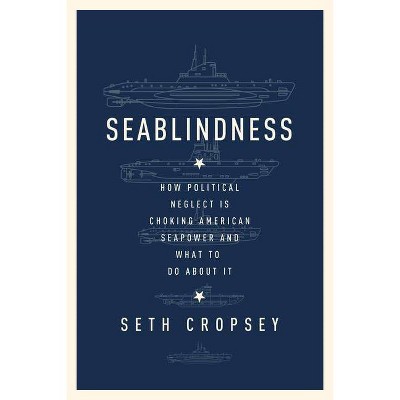Seablindness - by Seth Cropsey (Hardcover)

Similar Products
Products of same category from the store
AllProduct info
<p/><br></br><p><b> Book Synopsis </b></p></br></br>The challenges to American security in the Western Pacific, the seas that surround Europe, and the Persian Gulf are growing. At the same time, U.S. military commanders seek more naval forces to protect America's interest in the safe transit of American goods, deterrence in a proliferating world, and the defense of our key allies. At the same time U.S. defense budgets are shrinking. American seapower has not been as small as it is today since before World War I. Unless reversed, U.S. seapower will continue its decline into the indefinite future as politicians ignore the widening gulf between the cost of modernizing and expanding American seapower, and the resources devoted to this most strategic arm of the nation's defense. <i>Seablindness</i> explains the dilemma. It looks at the consequences of neglect including the effect of increased deployments on families, global scenarios set in the immediate future, the views of America's most knowledgeable military officers, the anxious reactions of U.S. allies, and hard facts to show how a lack of political will is dismantling the nation's global reach and with it, our position as the world's great power. <p/><p/><br></br><p><b> About the Author </b></p></br></br>Seth Cropsey served as deputy Undersecretary of the U.S. Navy in the administrations of Ronald Reagan and George H. W. Bush. He was an officer in the U.S. Naval Reserve from 1985 to 2004. Cropsey is a Senior Fellow at the Hudson Institute in Washington, DC and director of Hudson's Center for American Seapower. His previous book, <i>Mayday</i>, published in 2014, examines the history of U.S. naval power, the fate of other maritime states that have given up or lost their power at sea, and policy options for the future.
Price History
Price Archive shows prices from various stores, lets you see history and find the cheapest. There is no actual sale on the website. For all support, inquiry and suggestion messagescommunication@pricearchive.us




















